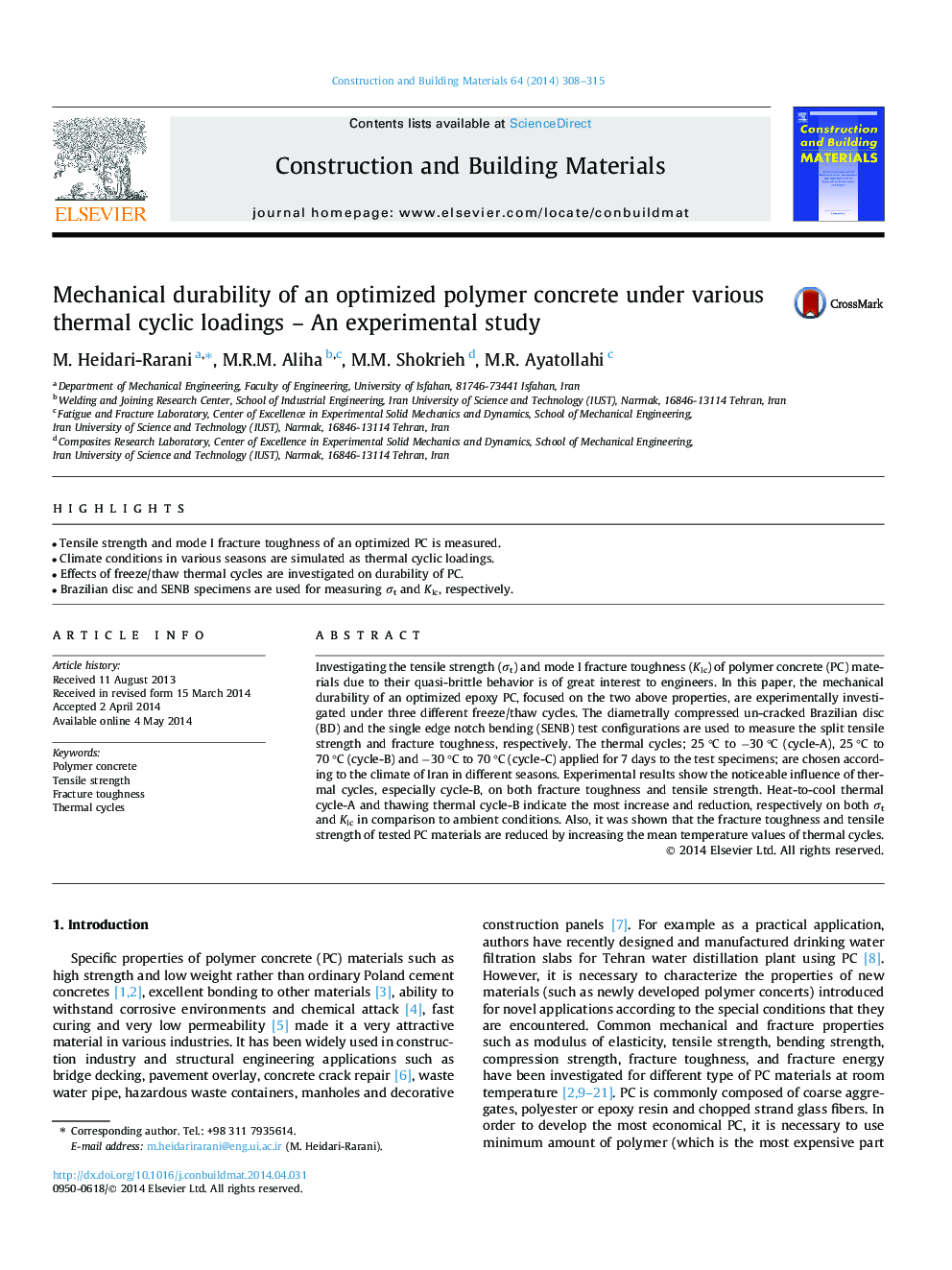| Article ID | Journal | Published Year | Pages | File Type |
|---|---|---|---|---|
| 257605 | Construction and Building Materials | 2014 | 8 Pages |
•Tensile strength and mode I fracture toughness of an optimized PC is measured.•Climate conditions in various seasons are simulated as thermal cyclic loadings.•Effects of freeze/thaw thermal cycles are investigated on durability of PC.•Brazilian disc and SENB specimens are used for measuring σt and KIc, respectively.
Investigating the tensile strength (σt) and mode I fracture toughness (KIc) of polymer concrete (PC) materials due to their quasi-brittle behavior is of great interest to engineers. In this paper, the mechanical durability of an optimized epoxy PC, focused on the two above properties, are experimentally investigated under three different freeze/thaw cycles. The diametrally compressed un-cracked Brazilian disc (BD) and the single edge notch bending (SENB) test configurations are used to measure the split tensile strength and fracture toughness, respectively. The thermal cycles; 25 °C to −30 °C (cycle-A), 25 °C to 70 °C (cycle-B) and −30 °C to 70 °C (cycle-C) applied for 7 days to the test specimens; are chosen according to the climate of Iran in different seasons. Experimental results show the noticeable influence of thermal cycles, especially cycle-B, on both fracture toughness and tensile strength. Heat-to-cool thermal cycle-A and thawing thermal cycle-B indicate the most increase and reduction, respectively on both σt and KIc in comparison to ambient conditions. Also, it was shown that the fracture toughness and tensile strength of tested PC materials are reduced by increasing the mean temperature values of thermal cycles.
